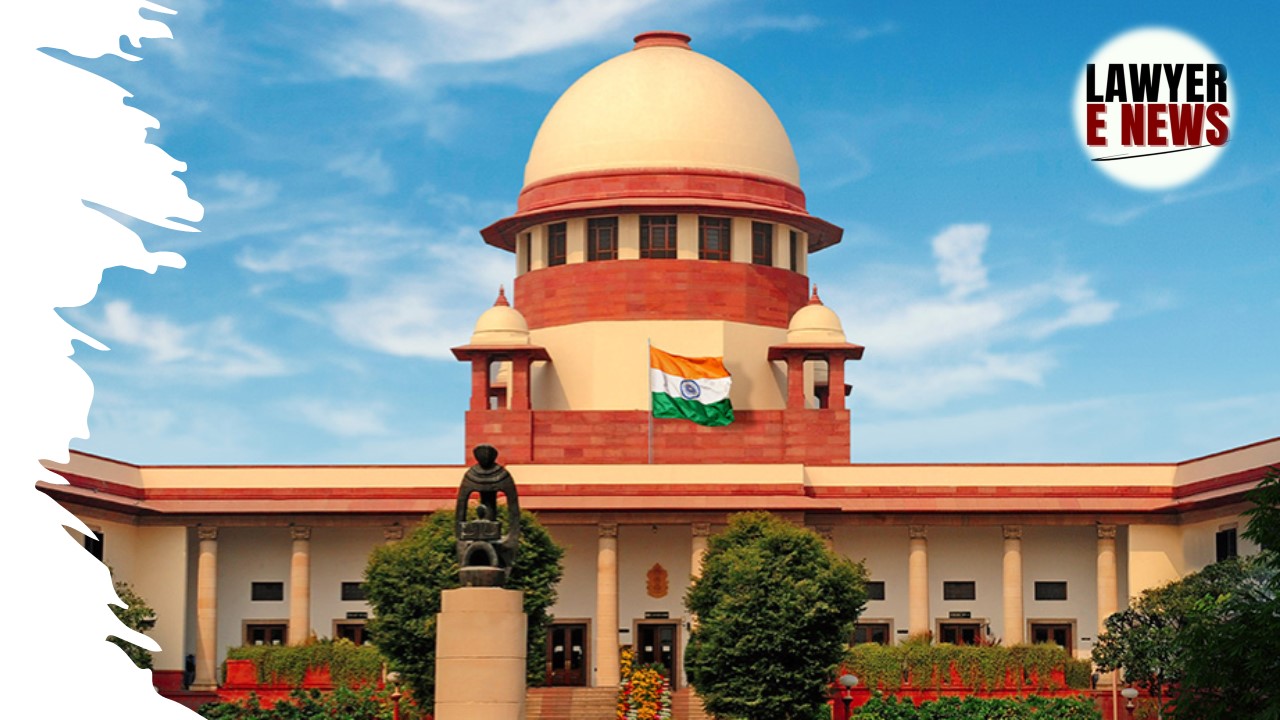-
by sayum
14 February 2026 2:22 PM



Supreme Court of India, in the landmark judgment Shyam Kumar Inani & Ors. v. Vinod Agrawal & Ors., restored the Trial Court’s decree favoring specific performance for six purchasers of agricultural land in Bhopal. Overturning a High Court judgment, the apex court reaffirmed the sanctity of valid agreements and underscored the principle that subsequent sales in violation of injunction orders are void.
The dispute revolved around 23.98 acres of land originally owned by Sushila Devi, who purchased the property in 1966. On August 30, 1990, Sushila Devi entered into six agreements to sell portions of this land to the appellants after receiving full consideration and handing over possession. After her death in 1992, her legal heirs refused to execute sale deeds and subsequently alienated the land to third parties, even during the pendency of the trial.
The appellants filed suits in 1995 seeking specific performance, nullification of subsequent sales, and damages. The Trial Court decreed in favor of the plaintiffs, but the High Court reversed the decision, questioning the agreements’ validity, citing vagueness, limitation, and procedural lapses.
The defendants challenged the agreements as fraudulent and alleged forgery, claiming no consideration was received. However, the Supreme Court observed:
The appellants produced original title deeds and Rin Pustika, handed over by Sushila Devi, as corroborative evidence.
Testimonies from witnesses, including an attesting witness, substantiated the agreements' authenticity.
Handwriting experts on both sides failed to conclusively establish forgery.
"The appellants conclusively established the agreements’ validity. Allegations of fraud require concrete evidence, which the defendants failed to provide."
The High Court had held that the plaintiffs failed to demonstrate readiness and willingness. The Supreme Court, however, clarified:
Full consideration had already been paid by the appellants at the time of agreement.
Subsequent efforts by appellants to obtain sale deeds were thwarted by the defendants.
"When full consideration has been paid and possession delivered, readiness and willingness are inherently demonstrated unless rebutted."
The High Court deemed the suit barred under Article 54 of the Limitation Act, 1963, asserting that time commenced upon Sushila Devi’s death. The Supreme Court, rejecting this finding, held:
The agreements did not fix a specific date for performance.
The cause of action arose in 1994, during mutation proceedings initiated by the defendants.
"When no time for performance is stipulated, the limitation period begins upon refusal to perform, not earlier. The suit was filed well within time."
The defendants executed subsequent sales in 2001, despite an interim injunction prohibiting alienation. The Supreme Court declared these sales void, reaffirming the doctrine of lis pendens under Section 52 of the Transfer of Property Act, 1882.
"Transfers made during litigation cannot defeat prior contractual rights or judicial orders. Such actions are void and reflect mala fide intent."
The High Court extended special protection to Sushila Devi, citing her old age and illiteracy. The Supreme Court disagreed:
No evidence supported the claim that Sushila Devi was a pardanashin woman or lived in seclusion.
She had independently managed property transactions, including the 1966 purchase.
"Old age and illiteracy alone do not warrant pardanashin protection absent evidence of seclusion or undue influence."
The Supreme Court restored the Trial Court's decree and issued the following directions:
Execution of Sale Deeds: The defendants and subsequent purchasers were ordered to execute sale deeds in favor of the appellants within four weeks.
Nullification of Subsequent Sales: The sales executed during the trial in violation of the injunction were declared null and void.
The Supreme Court’s judgment reaffirms critical principles governing specific performance, limitation, and the invalidity of unauthorized transactions during litigation. By protecting the appellants' contractual rights, the Court emphasized judicial consistency and deterrence against mala fide transfers.
Date of Decision: November 12, 2024
